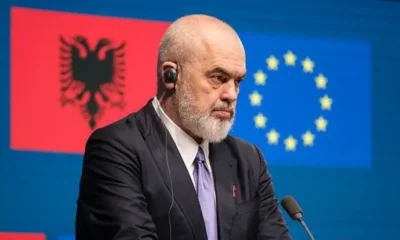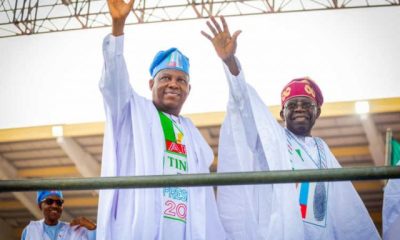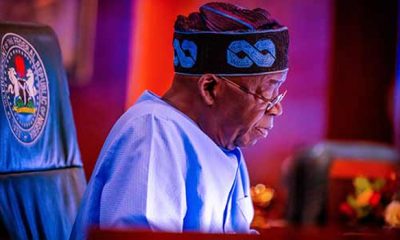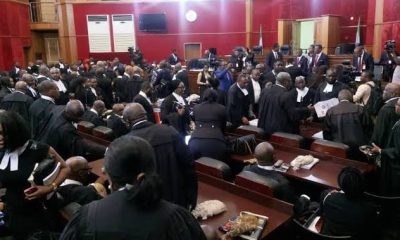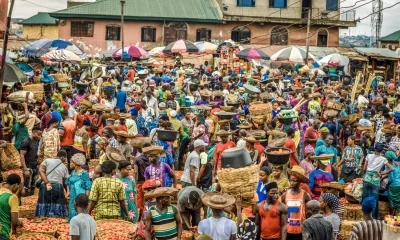Special Features
INSIGHT: Nigerians Are On The Brink Of A Tinubu Presidency; What Should They Expect?
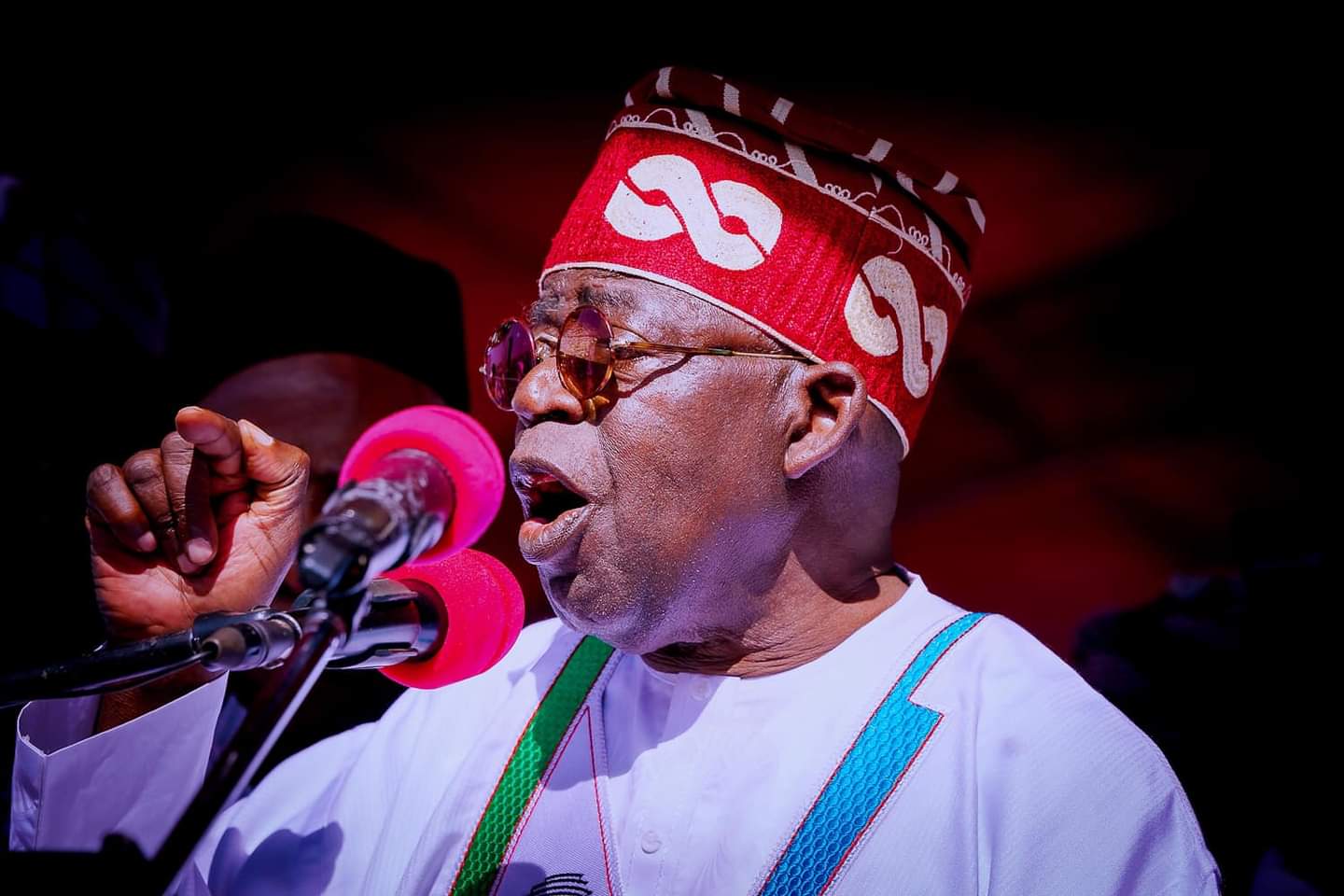
President-elect Bola Tinubu and Vice President-elect Kashim Shettima are set to take over the reins of Nigeria on May 29, 2023. Recall that Tinubu and Shettima won the presidential election held across 36 states and the Federal Capital Territory (FCT) on February 25, 2023.
The Independent National Electoral Commission declared Tinubu and Shettima president-elect and vice president-elect, respectively, after their ticket garnered 8,794,726 votes to defeat their opponents. The runner-up, Atiku Abubakar of the opposition People’s Democratic Party (PDP), polled 6,984,520 votes, while Labour Party’s Peter Obi had 6,101,533 votes to come third.
EDITOR’S PICKS
During the campaign, President-elect Tinubu promised Nigerians Renewed Hope in their country. Indeed, the country was and is in need of renewed hope, as many have lost hope in their country before and after the elections.
The Director General of the World Trade Organisation (WTO), Dr. Ngozi Okonjo-Iweala, recently said that trust had been broken between the leadership and citizenry in the wake of the 2023 elections. As true as that is, the trust was broken long before the elections; the disputed polls have only exacerbated the distrust of the system.
As President-elect Tinubu prepares to assume office, he has a golden opportunity to entrench his name in history and be the leader that restores the hope of his people in their country. His campaign manifesto features lofty ideas aimed at fixing three of the most troubled sectors in Nigeria. Here are some of the president-elect’s plans for each critical sector.
ECONOMY
Nigeria is sitting on a goldmine of natural resources, yet it continues to struggle with a chronic importation problem. Tinubu has, therefore, laid out a strategy to reduce the country’s dependence on imported goods, including the use of policy measures such as luxury taxes, higher processing fees, and higher tariffs on non-essential products. He’s also proposing sweeteners for international brands, such as tax credits and rebates, to set up companies and manufacture products for export in Nigeria while also meeting the needs of consumers within the country.
Furthermore, Tinubu’s plan to reinvigorate the economy involves the reform of the country’s broken tax system. He has proposed a smarter approach to taxation that includes creating a progressive tax system, closing up sneaky loopholes, improving the efficiency of collection, and fostering a greater sense of responsibility among taxpayers.
Additionally, Tinubu aims to reform the civil service to combat corruption, streamline agencies, and eliminate inefficiency and waste.
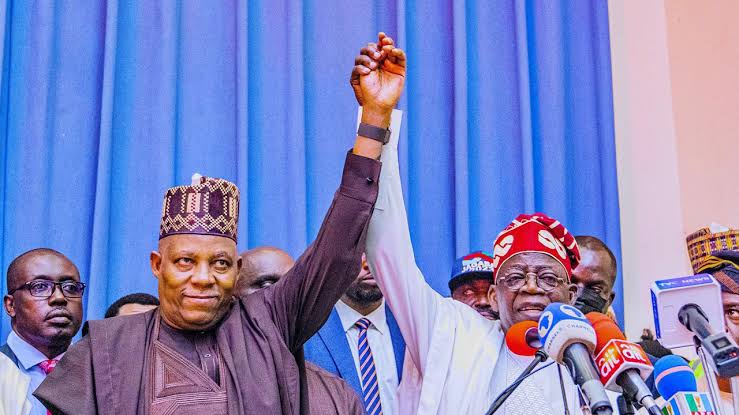
Vice President-elect Kashim Shettima and President-elect Bola Tinubu
SECURITY
Regarding security, Tinubu promised to bolster Nigeria’s security forces by recruiting, training, and better equipping additional police, military, paramilitary, and intelligence personnel. His manifesto also promises to address the welfare concerns of frontline military and security personnel.
Notably, Tinubu’s security plan involves freeing police personnel from extraneous duties such as VIP security and guard duties that limit their capacity to protect all Nigerians from harm. More importantly, he plans to restore economic hope and vitality to distressed regions to make them infertile recruitment areas for non-state actors.
EDUCATION
Tinubu has pledged to fortify the infrastructure of Nigeria’s educational institutions. According to his manifesto, he claims to ease the burden of overcrowded classrooms, a persistent issue in the country’s education sector.
Also, the president-elect intends to establish a permanent committee to develop and continually update curriculums that align with the demands of the private sector, providing students with the skills they need to succeed in the real world.
Tinubu’s education vision also places a spotlight on teacher training in federally funded primary and secondary schools, handpicking only the best educators to mould the minds of future generations. Though initially aimed at federal institutions, this plan is likely to serve as a wake-up call to state governments, inspiring them to implement similar initiatives in their own domains.
Moreover, Tinubu plans to address the plight of students in Nigeria’s federal tertiary institutions who struggle to pay tuition. Mimicking the popular American student loan system, the APC presidential candidate hopes to establish a pilot student loan regime with flexible repayment provisions.
Curiously, Tinubu’s manifesto dances around the glaring issue of the recurrent strikes by lecturers in government-owned polytechnics and universities. While the manifesto vows to provide government funding for higher education, it does not propose a concrete strategy to fix the age-long problem.
FURTHER READING
With Tinubu promising renewed hope, Nigerians will be hoping it will not be business as usual.
Philip Ibitoye writes for Eko Hot Blog. This media platform reserves all rights to this article.
Click to watch our video of the week:
Advertise or Publish a Story on EkoHot Blog:
Kindly contact us at [email protected]. Breaking stories should be sent to the above email and substantiated with pictorial evidence.
Citizen journalists will receive a token as data incentive.
Call or Whatsapp: 0803 561 7233, 0703 414 5611


